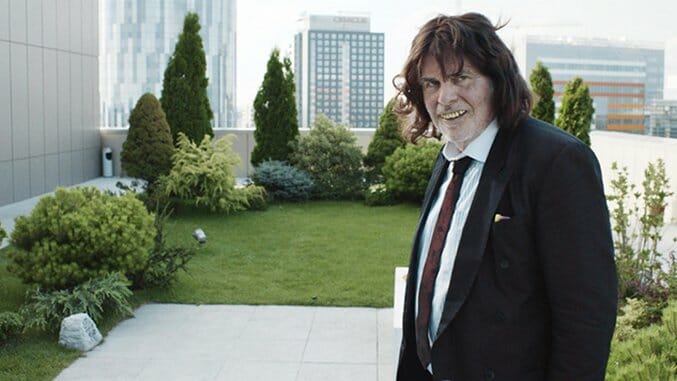Toni Erdmann
2016 Cannes Film Festival Review

German writer-director Maren Ade’s last film was the audacious, masterful romantic drama Everyone Else, which pitilessly examined a young couple’s slow realization that maybe they shouldn’t be together. Her latest is also about a kind of breakup, in two ways: Toni Erdmann tells the story of a father and his distant daughter negotiating the reality of their severed bond—but it’s also about Ade crafting a moving, perceptive, human character piece and then provocatively shifting course halfway through the film, daring her audience to stay onboard as she travels in a much more challenging direction. Toni Erdmann never regains its equilibrium afterward—only after some reflection does it seem apparent that equilibrium was never what Ade was after anyway.
Peter Simonischek plays Winfried, an older German man, one of those guys who finds his own sense of humor so endlessly delightful no one else need bother. As the film opens, he’s pranking a deliveryman, making the guy think he’s holding a package with a bomb—and if that joke seems pretty shtick-y, well, Winfried has dozens more like it. You know the type: fun for about five minutes, but then excruciating to be around.
-

-

-

-

-

-

-

-

-

-

-

-

-

-

-

-

-

-

-

-

-

-

-

-

-

-

-

-

-

-

-

-

-

-

-

-

-

-

-

-








































